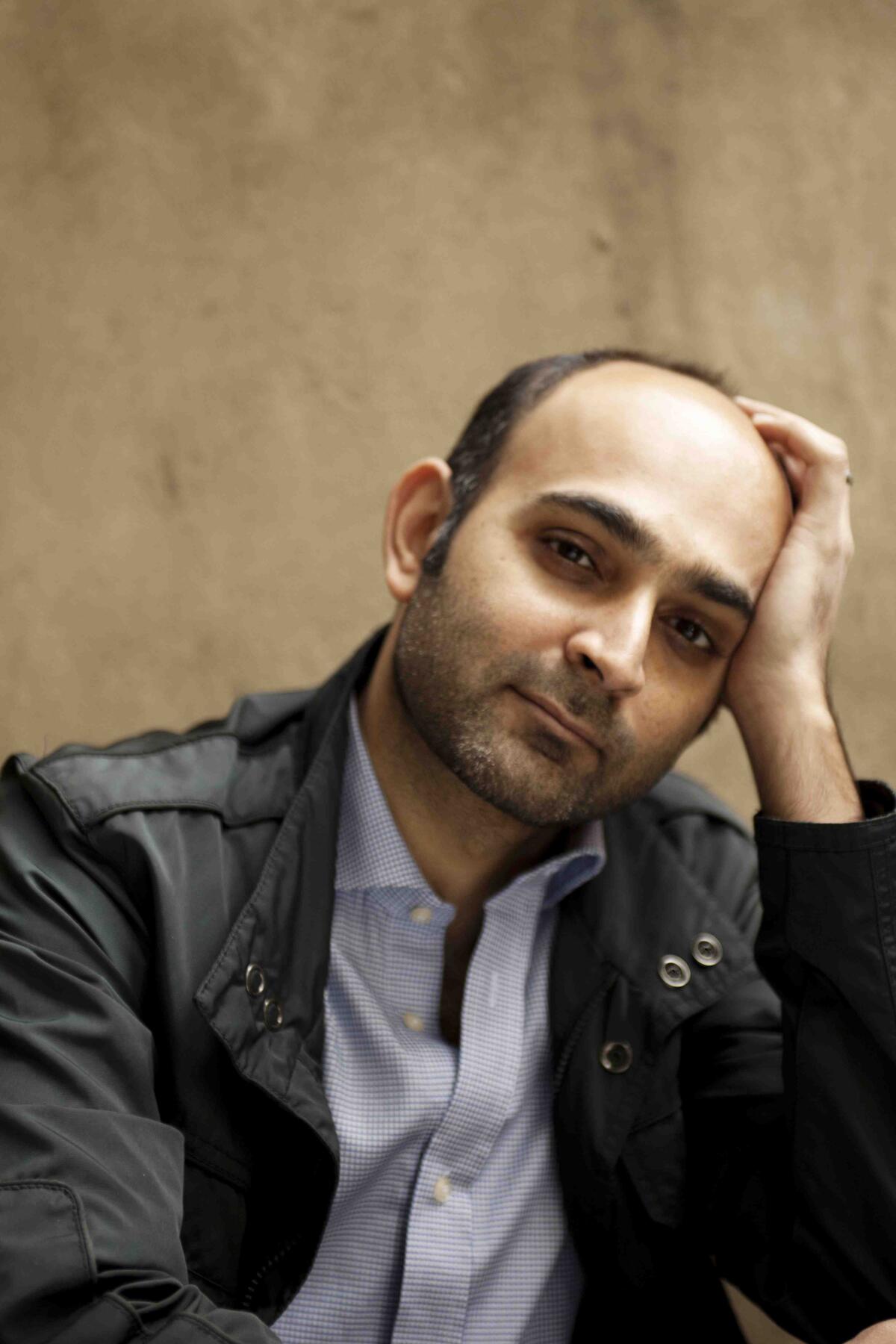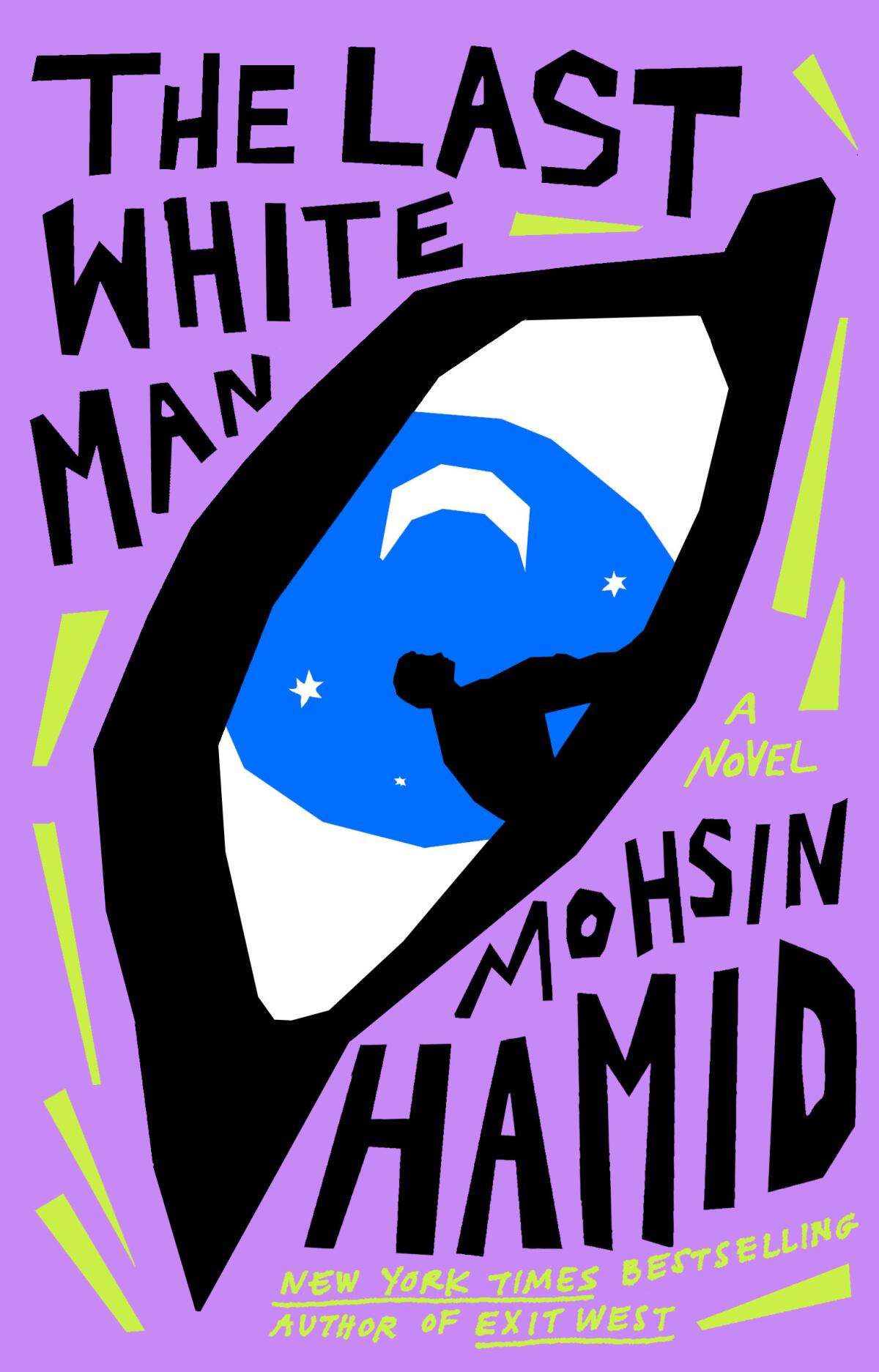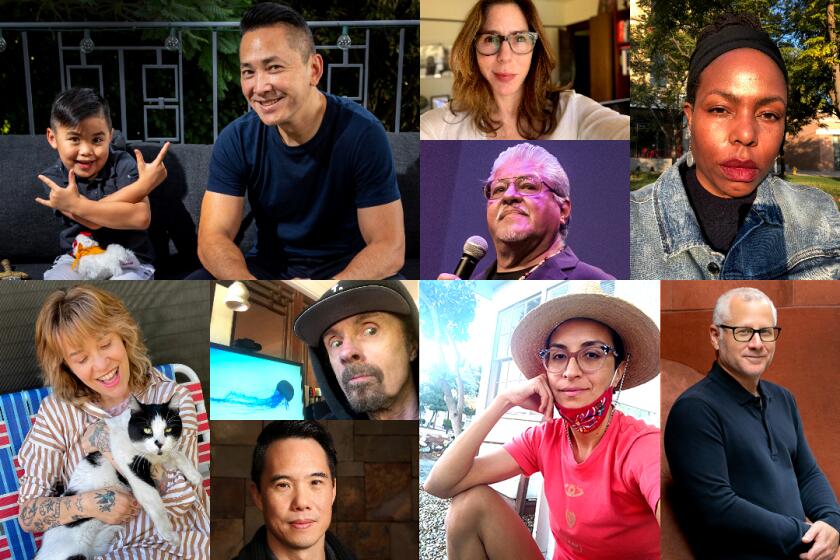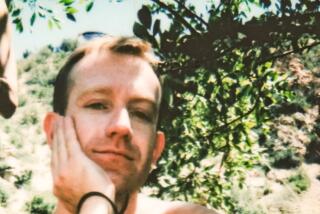How 9/11 and the pandemic inspired the timely premise of Mohsin Hamid’s new novel

On the Shelf
The Last White Man
By Mohsin Hamid
Riverhead: 192 pages, $26
If you buy books linked on our site, The Times may earn a commission from Bookshop.org, whose fees support independent bookstores.
Novels of strange, sudden physical transformations are a fascinating subgenre — from “The Metamorphosis,” Kafka’s 1915 novella in which Gregor Samsa famously wakes up as a cockroach, all the way to A. Igoni Barrett’s 2016 satire “Blackass,” in which a Nigerian man turns white (except for his backside). While Barrett’s novel pokes fun at racial attitudes in his own country, British Pakistani writer Mohsin Hamid’s new novel goes deeper, creating a moral fable for our entire harrowing world in “The Last White Man.”
Anders, a 20-something physical trainer in an unspecified suburban town, arises to his own surprising discovery, a deliberate echo of Samsa’s: “One morning, Anders, a white man, woke up to find he had turned a deep and undeniable brown.” So begins the latest from Hamid, who has made a career of probing raw cultural nerves in novels such as “The Reluctant Fundamentalist” and “How to Get Filthy Rich in Rising Asia.” And just as “Exit West,” his 2017 bestseller and winner of The Times Book Prize for fiction, found a fresh way to rethink the world’s refugee crisis (hidden portals magically transport people across the world), “The Last White Man” explores racial tribalism in an eerily familiar alternate universe.
“‘Exit West’ was about the migration apocalypse. Everyone was terrified: People are moving! What’s going to happen?” Hamid, 51, explains over a Zoom call from Lahore, Pakistan, where he has lived for the last decade after spending much of his life in the U.S. and England. “And now we see people retreating into their tribal identities all over the world, and there is a fear of losing your identity. ‘The Last White Man’ asks the question: What if we lose our identities? But what if after losing them, we find something maybe a little better?”
Anders is not so open-minded at first. He’s confused, horrified, bereft. He broods and rages, grieving over the loss of his sense of privilege. And he’s not the only one: Soon the contagion is spreading through the entire town as, one by one, people wake up dark-skinned. The internet is abuzz with warnings of the coming “final chaos.” White militias spring up to fight signs of “a plot that had been building for years, for decades, maybe for centuries, the plot against their kind.”
Anders’ initial shock draws in part on Hamid’s memories of an older crisis — the terror attacks of Sept. 11, 2001. As a brown man with a Muslim name, the author felt perceptions shift around him despite his educated, elite status. Before the attacks, he had felt at least the partial benefits of an assimilated acceptance; now, he was being eyed suspiciously in airport security lines — and worse. “At first, I just wanted to get back what I had lost,” he recalls. “I was hoping that America would come to its senses and that things would be fine, that this was just a passing phase.”
Ayad Akhtar, author of the new novel, “Homeland Elegies,” talks capitalism, Trump and literary tokenism with “Conditional Citizens” author Laila Lalami.
But things remained fraught during the Obama years as the wars in Afghanistan and Iraq dragged on, and became even grimmer after Trump was elected. Perhaps the future wasn’t as rosy as Hamid had imagined. Nor was this exclusively an American phenomenon, he realized.
“I wanted to write about this experience of losing one’s membership, and at the same time I saw people losing it in other places,” Hamid says. “Writer friends of mine in India who weren’t onboard with Modi’s Hindutva suddenly didn’t feel welcome — the same with journalists in Turkey who didn’t get along with Erdogan, or in Putin’s Russia, or in Britain during the whole Brexit thing.”

But in the novel, there is a counterargument. If Anders, like Hamid, feels something was stolen from him, his girlfriend, Oona, sees things differently. In fact, she looks forward to shedding the “confinement of the past” and the historical baggage that has weighed her down. “There’s a sense of loss of a kind of privilege,” Hamid says, but on the other hand “there’s also a sense of liberation that comes from that prison of privilege being taken away.”
Oona reflects Hamid’s own evolution, as he came to see his situation more critically: “I remember thinking later, as the years passed, If I’ve been robbed of something what was I robbed of? What were the conditions that allowed it to exist? Have I been robbed or have I been liberated?” Hamid, who was born in Pakistan but moved to the U.S. at the age of 3, realized being part of such an unequal system would increasingly “crush” him.
The internal reactions of Anders and Oona — and the changing nature of their relationships to themselves and others — are exquisitely evoked by Hamid in a mesmerizing, serpentine style he discovered while writing “Exit West.”
“As the sentences got longer, they became like this incantation,” he says. “And as I sat down to write ‘The Last White Man,’ I was building off that and thought it would be interesting to try to write sentences that create an emotional dynamic similar to what the book is about, where suddenly your racial position becomes destabilized. These long, fluid sentences are kind of like the fluid nature of what these characters are experiencing.”
T.C. Boyle, Viet Than Nguyen, Rachel Kushner, Carribean Fragoza, Tom Perrotta, Charles Yu, Michelle Tea, Dana Johnson, Luis J. Rodriguez on their pandemic years.
Though the idea had been gestating since the events of 9/11, Hamid only started working on the novel during the pandemic. The surreal tenor of those times, he says, enhanced the book’s suspension of disbelief. “What the pandemic did was kind of rip open this gash in consensus reality,” he says. “And it felt like a strangely fertile moment in human imagination, when we could believe stuff that we hadn’t believed before. It encouraged me to go on with this book, because it’s not a fantasy that things can suddenly change.”
Even as Anders and Oona’s inner lives are intimately observed, there remains a vagueness to their location. It could be almost anywhere in our globalized world. “The emotional world is in sharp focus, but the external world — what is this town? Where is it? What country is this? — is intentionally kept blurry,” Hamid says. “For me, it’s very important to understand that these trends are happening all over the world.
“I think we make a mistake when we imagine there’s this trend to white nationalism in America which has nothing to do with the trend towards Hindutva in India, religious extremism in Pakistan or Russian nationalism under Putin,” he continues. “The contemporary context is one that, for me, is remarkably universal. It is something that is happening in our world right now, a quarter of the way into the 21st century.”
Ultimately, Hamid argues, fiction can provide a different way of imagining the future, free of backward-looking constructs of race and belonging: “One thing fiction gets to do is to say, ‘OK, let’s not deny that an apocalypse may be coming. But let’s look critically at it. Is there something better that can be imagined? What would it look like, how would it feel, how might we get there?’”
“The Last White Man” offers its own small ray of light. “Sometimes it felt like the town was a town in mourning, and the country a country in mourning,” Hamid writes, “but at other times it felt like the opposite, that something new was being born.”
Tepper has written for the New York Times Book Review, Vanity Fair and Air Mail, among other places.
Annette Gordon-Reed, Ayad Akhtar, Héctor Tobar, Martha Minow, David Kaye and Jonathan Rauch discuss the Jan. 6 riot and what we do about it.
More to Read
Sign up for our Book Club newsletter
Get the latest news, events and more from the Los Angeles Times Book Club, and help us get L.A. reading and talking.
You may occasionally receive promotional content from the Los Angeles Times.







